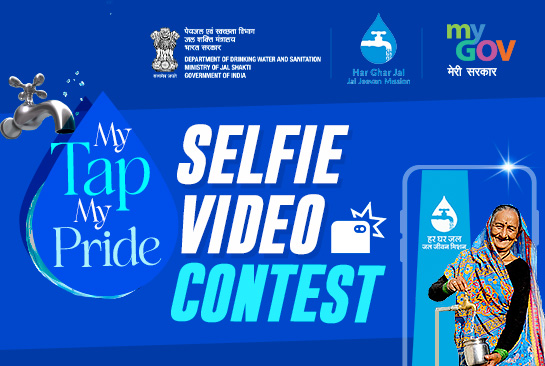ভারত বিশ্বের সেই অন্যতম দেশ যেখানে অতিশয় নারী ও শিশুর বাস। নারী ও শিশু উন্নয়ন মন্ত্রক অন্যান্য সম্পর্কিত মন্ত্রক ও বিভাগগুলির সঙ্গে মিলিতভাবে এই জনগোষ্ঠীর পুষ্টি ও স্বাস্থ্য পরিস্থিতির উন্নতির জন্য কাজ করছে। ভারতে প্রচলিত বহু ধরনের খাদ্যাভ্যাস প্রাচীনকাল থেকেই পুষ্টিগুণে সমৃদ্ধ। এতে থাকে নানা ধরনের শস্য (যেমন চাল, গম, মিলেট, ভুট্টা), ডালজাতীয় দানাশস্য (যেমন মুসুর, ছোলা, রাজমা), ঋতুভিত্তিক ফলমূল, শাকসবজি, মূল ও কন্দজাতীয় সবজি। এর পাশাপাশি দুগ্ধজাত খাদ্য, মশলা, বাদাম, বীজ এবং তেল পুষ্টি ও স্বাদ উভয় ক্ষেত্রেই গুরুত্বপূর্ণ ভূমিকা রাখে। এই বৈচিত্র্য শুধু রুচির পরিতৃপ্তিই আনে না বরং সুস্বাস্থ্যের জন্য প্রয়োজনীয় বিভিন্ন ধরনের ম্যাক্রো ও মাইক্রোনিউট্রিয়েন্ট গ্রহণও নিশ্চিত করে। ভারতের ঐতিহ্যবাহী ‘থালি’ (প্ল্যাটার) খাদ্য ভারসাম্য ও বৈচিত্র্যের এক নিখুঁত উদাহরণ। এতে সাধারণত থাকে ভাত বা রুটি, ডাল, তরকারি, দই এবং অঞ্চলভেদে বা সাংস্কৃতিক রীতিনীতির ওপর নির্ভর করে কখনও মাংস বা মাছ। নিরামিষ খাদ্যাভ্যাসের মধ্যেও ভারত নানা ধরনের খাদ্যসমাহার, রান্নার পদ্ধতি এবং ঋতুভিত্তিক পরিবর্তনের অসাধারণ বৈচিত্র্য প্রদর্শন করে।
ভারতের খাদ্য বৈচিত্র্য রক্ষা এবং ভালো পুষ্টি, সুস্থ পরিবেশ বজায় রাখতে উৎসাহিত করা, ভারতের সাংস্কৃতিক ঐতিহ্য বজায় রাখার জন্য খুবই গুরুত্বপূর্ণ। মিলেট খাওয়ার পুনরায় প্রচলন, রান্নাঘরের লাগোয়া বাগান করতে উৎসাহিত করা এবং সরকারি পুষ্টি কর্মসূচি (যেমন পোষণ অভিযান)-এ স্থানীয় খাদ্য অন্তর্ভুক্ত করা, এসব প্রচেষ্টা সুস্থ ভবিষ্যত নির্মাণে গুরুত্বপূর্ণ ভূমিকা পালন করছে। আমাদের ঐতিহ্যবাহী খাদ্যজ্ঞানকে গ্রহণ করে এবং সবার জন্য বৈচিত্র্যময় খাদ্যের সহজলভ্যতা নিশ্চিত করে, ভারত অপুষ্টি দূরীকরণে এবং টেকসই উন্নয়ন লক্ষ্যমাত্রা অর্জনে একটি গুরুত্বপূর্ণ পদক্ষেপ নিতে সক্ষম হতে পারে।
একটি এমন ভবিষ্যত গড়া, যেখানে প্রতিটি শিশু ও নারী যথাযথ পুষ্টি পাবে এবং সুস্থভাবে বিকাশের সুযোগ পাবে; সচেতনতা, শিক্ষা এবং আচরণ পরিবর্তনের জন্য সৃজনশীল ও টেকসই পদ্ধতি অপরিহার্য। এর মধ্যে একটি উদ্ভাবনী উদ্যোগ হলো ‘পোষণ মিউজিয়াম’ স্থাপন করা, এটি একটি বিশেষ স্থান যা জনগণকে পুষ্টি ও স্বাস্থ্যের গুরুত্ব সম্পর্কে শিক্ষা দেয়, অনুপ্রাণিত করে এবং সক্রিয়ভাবে অংশগ্রহণে উৎসাহিত করে। এই মিউজিয়াম ভারতের পুষ্টি কর্মসূচিকে সমর্থন করার জন্য একটি গতিশীল, ইন্টারেক্টিভ প্ল্যাটফর্ম হিসেবে কাজ করতে পারে এবং ‘পোষণ অভিযান’-এর বার্তাকে আরও শক্তিশালী করে তুলতে পারে।
পোষণ মিউজিয়াম স্থাপনের লক্ষ্য হলো একটি সৃজনশীল, ইন্টারেক্টিভ এবং অন্তর্ভুক্তিমূলক জাতীয় প্ল্যাটফর্ম গড়ে তোলা, যা সকল বয়সের মানুষ, বিশেষ করে শিশু, নারী এবং কিশোর-কিশোরীদের জন্য পুষ্টি, স্বাস্থ্য এবং সুস্থতার বিষয়ে সচেতনতা, শিক্ষা এবং কর্মকাণ্ড প্রচার করবে। মিউজিয়ামটি জ্ঞান, অনুপ্রেরণা এবং জনসম্পৃক্ততার কেন্দ্র হিসেবে কাজ করবে, যা ভারতের সরকার কর্তৃক অপুষ্টি দূরীকরণের জন্য সম্পূর্ণ সমাজভিত্তিক পদ্ধতির সঙ্গে সঙ্গতিপূর্ণ।
ধরা হচ্ছে যে, পোষণ মিউজিয়ামের লক্ষ্য হবে:
পোষণ মিউজিয়াম শুধুমাত্র তথ্যের ভাণ্ডার নয় বরং একটি জীবন্ত ও বিকাশমান স্থান হবে যেখানে বিজ্ঞান, সংস্কৃতি এবং সৃজনশীলতা মিলিত হয়ে পুষ্টিকে কেবল একটি সরকারি কর্মসূচি থেকে মানুষের আন্দোলনে রূপান্তরিত করবে।
গ্যালারিটি কয়েকটি প্রধান বিষয়ভিত্তিক ক্ষেত্রে ভাগ করা হয়েছে
ফুড টাইমলাইন জোন - ভারতীয় খাদ্যাভ্যাসের ইতিহাস
পুষ্টি বিজ্ঞান
ঐতিহ্যবাহী খাদ্য গ্যালারি
নীতি, কর্মসূচি এবং উদ্যোগ
পুষ্টির জীবনচক্র বিষয়ক পদ্ধতি
গবেষণা, তথ্য এবং ডকুমেন্টেশন
ইন্টারেক্টিভ লার্নিং জোন
আয়ুর্বেদ এবং ভারতীয় খাবার
খাদ্য ও পুষ্টিতে প্রযুক্তিগত হস্তক্ষেপ
শিশুদের কর্নার
এই প্রতিযোগিতার উদ্দেশ্য হলো পোষণ মিউজিয়াম স্থাপনের জন্য গুরুত্বপূর্ণ বিষয়ভিত্তিক ক্ষেত্র সম্পর্কে মানুষের মতামত সংগ্রহ করা। এমন সৃজনশীল ধারণা দেওয়ার আমন্ত্রণ জানানো হচ্ছে, যেখানে পোষণ মিউজিয়াম কেবল তথ্য সরবরাহের জন্য নয়, বরং পুষ্টি সম্পর্কিত বিষয় নিয়ে মানুষের সঙ্গে সক্রিয়ভাবে আলচনাও করবে।
আপলোড ফর্ম্যাট: PDF
জমা দেওয়া এন্ট্রিগুলো নিম্নলিখিত মানদণ্ড অনুযায়ী মূল্যায়ন করা হবে:
সংস্থা প্রতিটি শ্রেণির মধ্যে তিনটি সেরা এন্ট্রি নির্বাচন করবে, যা সংস্থায় গঠিত একটি কমিটির মূল্যায়নের ভিত্তিতে করা হবে। প্রতিটি প্রধান বিষয়ভিত্তিক ক্ষেত্রের জন্য প্রথম, দ্বিতীয় এবং তৃতীয় সেরা এন্ট্রির জন্য একটি কৃতিত্বপত্র প্রদান করা হবে, যা সাবিত্রীবাঈ ফুলে জাতীয় নারী ও শিশু উন্নয়ন সংস্থার যোগ্য কর্তৃপক্ষ দ্বারা যথাযথভাবে স্বাক্ষরিত হবে।
ডঃ সংঘমিত্রা বৈর্ক, যুগ্ম পরিচালক (CP), সাবিত্রীবাঈ ফুলে জাতীয় মহিলা ও শিশু উন্নয়ন সংস্থা, 5 সিরি প্রাতিষ্ঠানিক এলাকা, হাউজ খাস, নয়াদিল্লি 110016।
গ্রামীণ অঞ্চলে জীবনযাত্রার মান উন্নত করা এবং জীবনযাত্রার সুবিধা বৃদ্ধি করতে, মাননীয় প্রধানমন্ত্রী 15 আগস্ট 2019-এ জল জীবন মিশন (JJM) হার ঘার জল ঘোষণা করেন। এই মিশনের লক্ষ্য হলো দেশের প্রতিটি গ্রামীণ পরিবারের জন্য নিশ্চিত কলের জল সরবরাহ নিশ্চিত করা।

D.E.S.I.G.N ফর BioE3 চ্যালেঞ্জ হল BioE3 (অর্থনীতি, পরিবেশ ও কর্মসংস্থানের জন্য জৈবপ্রযুক্তি) নীতিমালার অন্তর্গত একটি উদ্যোগ, যার লক্ষ্য দেশের তরুণ শিক্ষার্থী ও গবেষকদের দ্বারা উদ্ভাবনী, টেকসই এবং সম্প্রসারণযোগ্য জৈবপ্রযুক্তিগত সমাধানকে উৎসাহিত করা। এর মূল থিম হলো, 'তরুণ প্রজন্মকে তাদের সময়ের গুরুত্বপূর্ণ সমস্যা সমাধানে সক্ষম করে তোলা'।

কাউন্সিল অফ সায়েন্টিফিক অ্যান্ড ইন্ডাস্ট্রিয়াল রিসার্চ (CSIR), যা বিভিন্ন বিজ্ঞান ও প্রযুক্তি ক্ষেত্রে অত্যাধুনিক গবেষণা ও উন্নয়ন জ্ঞানের জন্য পরিচিত, একটি সমসাময়িক গবেষণা ও উন্নয়ন সংস্থা।
